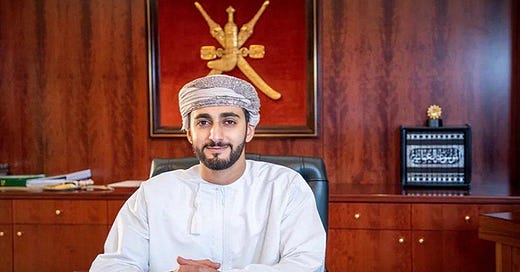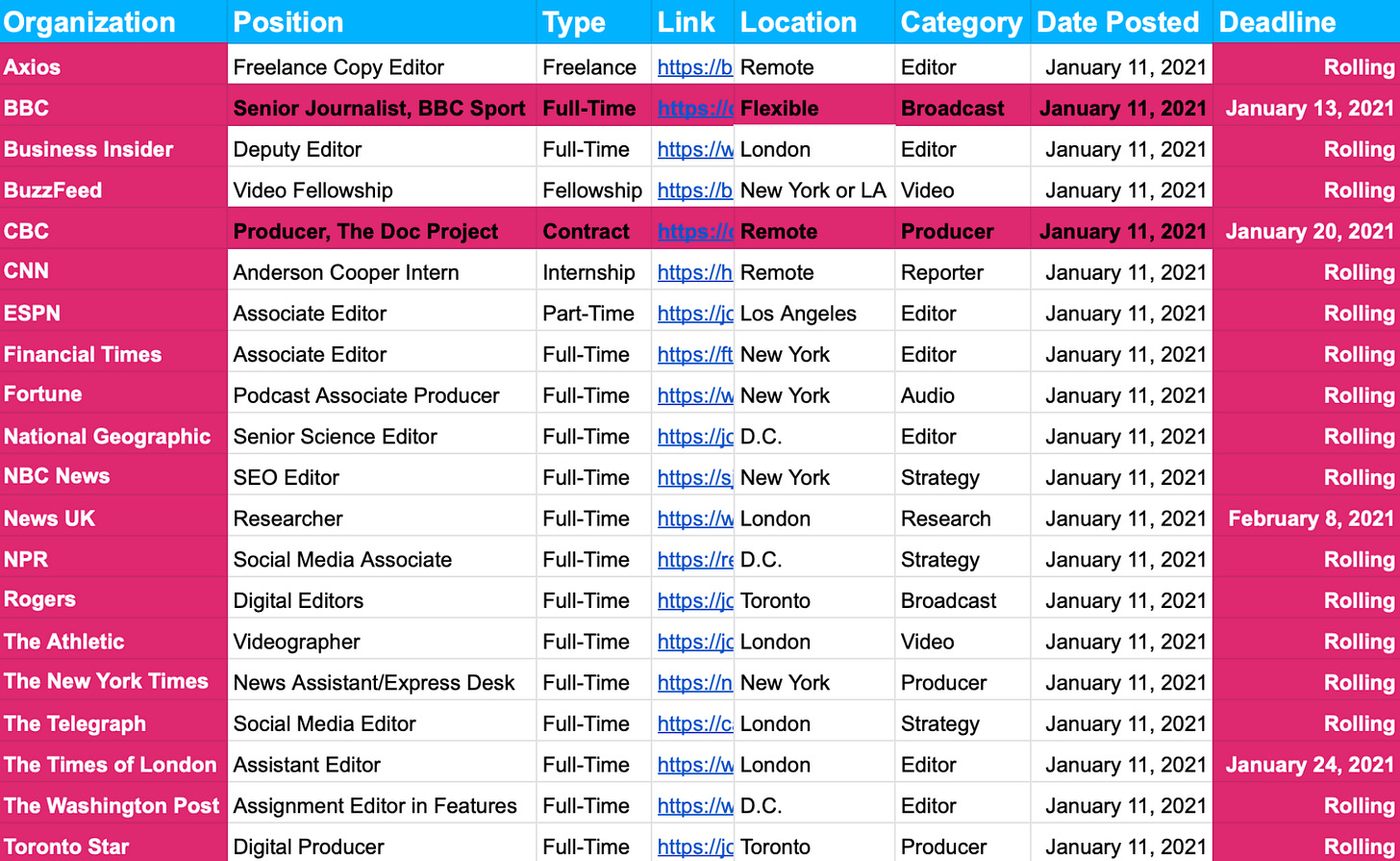🌍 Inside The Middle East — Jan. 13
Trump Declares Houthis Terrorist Organization, South Korean Warships Arrive in Persian Gulf, Iran Bans Covid Vaccines From U.S. and UK, Turkey's WhatsApp Mass Exodus, Oman Names First Crown Prince
Hello folks! It’s that time of the week again and we have another meaty edition of Inside The Middle East, where we dissect the most important news from the most important region in the world.
This week we’ll travel to Yemen where the outgoing Trump administration has declared the Houthi rebel movement fighting the Saudi-led coalition a terrorist organization; to Iran where South Korean warships have arrived as negotiations to release a Korean oil tanker have begun, as well as the news that Iran has banned Covid-19 vaccines from the U.S. and UK; to Turkey who has ditched WhatsApp over the platform’s controversial new privacy policy; and to Oman who has changed its constitution to name its first ever crown prince.
And as I mentioned on Monday, I want to tell you about gift subscriptions for the job board. You obviously don’t need me to tell you why you should give a friend or colleague a gift, so if you do go ahead with a gift, I’ll give you a free month to your own subscription… 👇
Okay Aina, over to you!
Job Corner
We had our biggest update to the job board so far, with more than 300 jobs added this weekend! Apparently there’s a limit on the number of people you can add to a Google Spreadsheet, so I’ve duplicated the main board. If you’re a paying member, you’ll have access to one of the two below links/buttons.
Preview of some of this week's new jobs 👇
Data Corner
A couple datasets referenced in today’s newsletter…
Gender Equality: Gender equality by country, from the UN
Humanitarian Crises: Data and reports on the world’s humanitarian crises, from The Humanitarian Data Exchange
Turkey Joins WhatsApp Exodus
We start this week in Turkey where President Recep Tayyip Erdoğan’s media office announced it will stop using WhatsApp, due to the messaging platform's new privacy policy. From February 8, WhatsApp will share contacts and profile data with its broader network that includes Facebook and Instagram, in order to monetize WhatsApp’s hundreds of millions of users. The mass exodus of WhatsApp users leaving for other messaging apps has been well noted, and Turkey’s top institutions will switch to the BiP messaging app to communicate with journalists.
It’s not just Erdoğan’s office ditching WhatsApp, and more than one million Turks have already switched to BiP. Additionally, Turkey’s competition board has launched an antitrust investigation into Facebook and WhatsApp. And in November, Turkey fined various social media companies for not complying to a new social media law that requires social apps to appoint a local representative to be accountable to Turkish courts, remove offensive content within two days and store user data inside the country.
Oman Names First Crown Prince
We travel now to Oman where Sultan Haitham bin Tariq Al Said has amended the constitution to create the position of a crown prince, as well as guarantees to more rights and freedoms for Omanis, including equality between men and women, which Oman currently ranks 60th in the world, according to the UN. The reforms will create a mechanism for the smooth transfer of power in the event of the Sultan passing away, and Sultan Haitham chose his eldest son Dhi Yazan bin Haitham to be the country’s first crown prince.
The moves come a year after Sultan Qaboos bin Said died from cancer after 49 years in charge, but had no family to pass power onto and thus a scramble to find a new leader ensued. It’s currently unclear what responsibilities Dhi Yazan will have as crown prince, but he’ll likely be involved in trying to resurrect the country’s economy, which the World Bank said contracted by about nine percent in 2020, due to the Covid-19 pandemic and falling oil prices.
Dhi Yazan bin Haitham 👇
Last Time on Inside The Middle East…
🌍 Inside The Middle East — January 6
🌍 Inside The Middle East — December 16
🌍 Inside The Middle East — December 9
🌍 Inside The Middle East — December 2
Trump Declares Houthis Terrorist Organization
Moving west to Yemen next where the outgoing Trump administration has declared the Houthi rebel movement a terrorist organization. U.S. Secretary of State Mike Pompeo said the move “will provide additional tools to confront terrorist activity and terrorism”, but international aid groups dubbed the move “diplomatic vandalism”, warning it would compromise shipments of food, medicine, oil and other necessities for the 70 percent of Yemenis that live in Houthi-controlled areas.
The almost-seven-year war between the Houthis and the Saudi-Emirati coalition has lead to one of the world’s worst humanitarian crisis, leaving 80 percent of the population to rely on aid to survive. U.S. President-elect Joe Biden promised he would end U.S. support for Saudi Arabia in Yemen’s war.

Iran Bans Vaccines From U.S. and UK
We move to Iran next where Supreme Leader Ayatollah Ali Khameini announced he has banned imports of Covid-19 vaccines from the U.S. and the UK, implicating the BioNTech/Pfizer, Moderna and AstraZeneca/Oxford vaccines. The leader tweeted saying they were “completely untrustworthy”, but Twitter removed the post because it violated the platform’s rules against misinformation.
Ali Khameini defended the conspiracy theory accusing the two countries of wanting to contaminate other nations, and also referenced France’s contaminated HIV blood scandal in the 1980s and 1990s. Iran is working on its own vaccine and could start mass distributing it in the spring. So far Iran has recorded more than 56,000 deaths and more than 1.2 million cases, both among the worst rates globally.

South Korean Warships Arrive in Persian Gulf
We finish today in the Persian Gulf, where a South Korean warship unit has arrived near the strait of Hormuz as negotiations with Iran have begun to try to resolve increasing tension between the two nations. Last week, Iran seized a South Korean oil tanker along with its 20 crew members, alleging the vessel was “polluting the Persian Gulf with chemicals”. In reality, the capture was likely meant to put pressure on South Korea to release $7 billion worth of frozen Iranian funds held in South Korea, linked to the end of the U.S.’s waiver for imports of Iranian oil.
Details of the negotiations have been unclear. Some media reports say Iran is also using the capture to negotiate Covid-19 vaccines, while others suggest the meetings between the two countries were organized prior to the tanker’s seizure. While we wait for more details to be released, we’ll continue to follow this one in the coming days and weeks…
Warship unit sent to Strait of Hormuz
That’s all for today. See you Friday for some Picks of the Week! 👋






